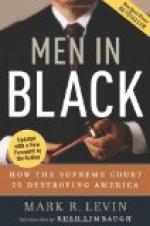The numberless transactions of the retail stores in a great city; such cases of proving that a pair of gloves were sold, delivered, and not paid for are extremely difficult to prove. The expense and trouble involved of subpoenaing the different departments and of breaking up the routine of the store, would prevent the stores becoming clients. The enormous transactions on the New York Stock Exchange, where a hundred million dollars’ worth of business is reputed to be done in one day, is entirely on the basis of personal honesty. So far as the court goes, should one party to a stock sale not be willing to complete, there would be little possibility of enforcing it. Therefore the Stock Exchange makes its own rules and has its own method of settling disputes. The world at large is not a client in the court. The man who becomes a client in the sense of litigant is an exception. The courts would seem to be unrelated to the demands of actual business affairs.
Times have changed since the Victorian days when a solicitor was the client’s deferential servant, the steward and custodian of the landed gentleman’s legal affairs. Then the lawyer had a profession which he carried in his head. Law reports contained a few thousand, not a million decisions, and there were no title insurance companies to make a business of determining the ownership of real estate. Yet in those days the legal adviser was not a very exalted person, ranking beneath the soldier and standing hat in hand before the gentleman of property, to whom he owed his living. The citizen who wished to learn whether he or his landlord should clear away the snow on the sidewalk, went gravely to a lawyer’s office and paid a fee for the information. It is obvious that lawyers do not make their living through small fees for giving advice. As a matter of fact, those whose work is more remunerative than a street-car conductor’s or a carpenter’s, make their living through business and not in small litigation.
To-day lawyers complain that their profession is slipping from them. But they have gained the prestige of business.
“I am a business man, not a lawyer,” says the elderly leader at the bar, and scarcely knows whether he is, on the whole, gratified or regretful.
Their abilities are used in directing the conduct of business from a legal standpoint and protecting it from those who are ready to prey upon it. Business needs protection from other business, from accident cases, and libel cases. These frequently get into the courts. Citizens need protection from business and seek it in the aggressive form of suits for damages. Big business looks on the courts as instruments of blackmail, and the small citizen feels that the courts are inadequate to protect his rights. It makes a deal of difference which side they are on. But in any case the present-day successful lawyer is primarily a business man.




